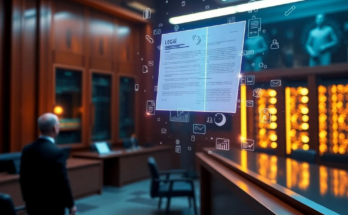Legal challenges can be daunting, especially when financial constraints come into play. Finding an attorney near me who offers affordable services is often a top priority for those facing legal issues. This concern is particularly pressing in areas like family law, where personal stakes are high and emotions run deep. Many individuals find themselves in need of legal guidance but worry about the costs associated with quality representation.
This guide aims to shed light on various avenues for obtaining affordable legal assistance. It will explore online resources that connect people with low-cost legal services, community-based programs offering pro bono help, and government-sponsored initiatives designed to make legal aid more accessible. Additionally, it will break down the process of applying for legal aid, helping readers understand their options and navigate the system effectively. By the end, readers will have a clearer picture of how to find affordable legal help in their area.
Online Resources for Affordable Legal Assistance
In the digital age, numerous online platforms have emerged to provide affordable legal assistance. These resources offer a range of services, from free legal information to interactive tools for document preparation.
Law Help Interactive
Law Help Interactive is a free online platform that assists individuals in filling out legal documents. This user-friendly service guides users through a series of questions, using their answers to complete the necessary forms. The platform covers various legal matters, including uncontested divorces, identity theft cases, visitation rights, and landlord-tenant disputes . Users can work at their own pace, with the option to save their progress by creating an account . Law Help Interactive also provides guidance on next steps, such as how to sign and file completed forms .
State-specific legal aid websites
The Legal Services Corporation has funded statewide legal information websites in almost every state and territory These websites offer accurate, easy-to-understand information on legal issues that commonly affect low-income and vulnerable individuals. Users can access these resources by visiting LawHelp.org and selecting their state from the list . These state-specific websites often provide:
- Fact sheets, brochures, and videos explaining legal rights
- Links to other helpful resources
- Free, interactive self-help forms for legal documents and court forms
- Information in multiple languages
- Details on free and low-cost nonprofit legal aid programs, often organized by zip code or county
Virtual legal clinics
Several organizations offer virtual legal clinics, providing free or low-cost legal advice online. The American Bar Association’s Free Legal Answers program allows individuals with low incomes to ask legal questions online and receive answers from volunteer lawyers . This service, however, does not address criminal matters . Additionally, many law schools operate pro bono programs that offer free legal assistance. Individuals can find these programs in their state through online directories .
Community-based legal aid programs offer valuable resources for individuals seeking affordable legal assistance. These programs provide a range of services to help people navigate legal challenges without incurring significant costs.
Law School Pro Bono Programs
Many law schools across the nation have established formal pro bono or public service programs . These initiatives not only benefit the community but also provide law students with practical experience. Some schools even require students to complete a certain amount of pro bono work as a graduation requirement These programs often partner with legal service providers to offer meaningful legal assistance to those in need .
Local Bar Association Referral Services
Local bar associations frequently operate lawyer referral services that connect individuals with qualified attorneys. For instance, the Chicago Bar Association’s Lawyer Referral Service has over 200 screened, qualified lawyers experienced in almost every area of law This service meets the American Bar Association’s Standards for Lawyer Referral and has among the highest experience requirements for its member lawyers nationwide .
Community Legal Clinics
Community legal clinics provide free or low-cost legal services to individuals who might not otherwise have access to legal representation. For example:
- The Economic Justice Clinic at UNM School of Law offers pro-bono legal help on various issues, including immigration, employment, wills, and family law .
- Pegasus Legal Services for Children runs a Family Law Clinic where attorneys provide free legal information on family law issues .
- DNA People’s Legal Services is a nonprofit law firm that offers free civil legal services to low-income individuals in the Southwestern United States .
These community-based programs play a crucial role in making legal aid more accessible to those who need it most.
Government-Sponsored Legal Aid Initiatives
Legal Services Corporation (LSC)
The Legal Services Corporation (LSC) plays a crucial role in providing legal assistance to low-income individuals across the United States. LSC awards grants to legal services providers through a competitive process, focusing on delivering high-quality civil legal services . These Basic Field Grants support full-service legal aid in specific service areas, including specialized subpopulation grants for agricultural workers and Native American communities .
LSC grantees offer a wide range of legal services, addressing issues such as consumer finance, family law, housing, education, income maintenance, employment, and health . In 2020, LSC received $50 million as part of a stimulus package to help its 132 grantees assist low-income clients facing challenges stemming from the COVID-19 pandemic .
State-funded legal aid offices
Many states have established their own legal aid programs to complement federal efforts. These state-funded offices often work in conjunction with LSC grantees to expand access to legal services for low-income residents. State-specific legal information websites, funded by the Legal Services Corporation, are available in almost every state and territory . These resources provide easy-to-understand information on various legal issues, often in multiple languages .
Court-based self-help centers
Court-based self-help centers have emerged as a vital component in bridging the justice gap. These centers empower litigants by providing access to legal information, advice, and assistance with forms [4]. Self-help centers benefit both individuals and the court system by reducing reliance on clerks, improving legal filings, and enhancing litigant preparedness.
Key services offered by self-help centers include:
- Providing legal information and answering general questions
- Offering access to court documents, forms, and written instructions
- Assisting with form completion
- Helping litigants prepare for in-person and virtual court appearances
Some self-help centers, staffed by attorneys, even offer legal advice . These centers play a crucial role in enhancing procedural justice and strengthening public trust in the legal system .
Navigating the Legal Aid Application Process
Gathering necessary documentation
To begin the legal aid application process, individuals should organize all relevant information and paperwork. This includes documents with important dates, receipts, and deadlines. It’s crucial to compile information on family income, including employment details, SSI, government assistance, and child support . Gathering evidence and documents that support the case is essential, as well as contacting potential witnesses .
Understanding income requirements
Eligibility for legal aid is primarily determined by income and legal status . In North Carolina, for example, legal aid organizations typically prioritize services for families whose income falls below 125% of the Federal Poverty Level . Additionally, families cannot have assets exceeding twice the income limit . It’s important to note that income thresholds may vary, with some organizations considering households with income up to 200% of the federal poverty guidelines .
Preparing for the initial consultation
To make the most of the initial consultation, individuals should:
- Write down questions beforehand to ensure nothing is forgotten .
- Prepare a fact statement detailing the case from the beginning, including dates and references to supporting evidence .
- Create a goal statement outlining the ideal outcome of the case .
- Make copies of all relevant documents to provide to the attorney.
- Consider bringing a friend or relative for support, but be aware that this may affect attorney-client confidentiality .
By following these steps, individuals can effectively navigate the legal aid application process and increase their chances of receiving the assistance they need.
Conclusion
The quest to find affordable legal assistance has an impact on countless individuals facing legal challenges. This guide sheds light on various avenues to access budget-friendly legal aid, from online resources and community-based programs to government-sponsored initiatives. By exploring these options, people can find the help they need without breaking the bank. What’s more, understanding how to navigate the legal aid application process empowers individuals to take control of their legal situations.
In the end, affordable legal assistance is within reach for those who know where to look. By tapping into the resources outlined in this guide, individuals can access the legal support they need to address their concerns effectively. Remember, everyone deserves access to justice, regardless of their financial situation. With the right information and approach, finding an affordable attorney near you becomes a manageable task, opening doors to legal solutions that might otherwise seem out of reach.




